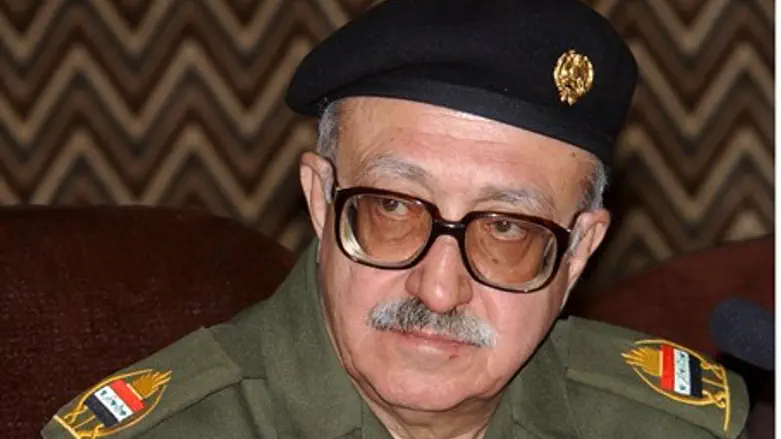
Tareq Aziz, who was known as “the voice” of Saddam Hussein's regime, died in an Iraqi hospital Friday at the age of 79 after years of poor health as a convicted prisoner, AFP reports.
"Tareq Aziz arrived at the Hussein Teaching Hospital at 3 p.m.," Dr. Saadi al-Majed, the head of the health department in Dhi Qar, the province where Aziz was jailed, told the news agency.
"He died because of a heart attack," the doctor said.
Adel Abdulhussein al-Dakhili, the deputy governor of Dhi Qar, confirmed that Aziz died in hospital in Nasiriyah, where the former foreign minister was brought when his health worsened.
Aziz had long been in poor health, suffering from heart and respiratory problems, high blood pressure and diabetes, and his family repeatedly called for his release from custody, according to the report.
In 2011, his lawyer said Aziz wanted then-premier Nuri al-Maliki to accelerate his execution due to his worsening health.
Aziz was found guilty of "deliberate murder and crimes against humanity" for a crackdown on religious parties in the 1980s, and was sentenced to death in October 2010.
He was also handed various prison sentences for other crimes.
As Saddam Hussein's principal spokesman, the bespectacled Aziz -- the only Christian in the now-executed dictator's inner circle -- was a recognizable figure internationally whose rise was attributed to unswerving loyalty to Saddam.
Aziz turned himself over to American custody a month after the U.S.-led invasion of March 2003.
Named foreign minister in 1983 and then deputy premier in 1991, Aziz was believed to have wielded little real power over decision-making, but was one of the regime's best-known figures abroad, noted AFP.
His death comes on the heels of recent reports that another former figure in Saddam’s regime, Izzat Ibrahim al-Duri, was killed in Iraq.
Several officials and leaders of Shiite militia groups had claimed to have killed Duri in April near the city of Tikrit.
Pictures had emerged of the body of a red-haired man bearing some resemblance to Saddam's feared deputy, who is the most senior former regime member believed to still be at large.
The authorities however have since been unable to positively identify the body as Duri's, arguing that they lacked DNA samples for comparison.
Several weeks ago, the TV channel of Iraq's former ruling Baath party released an audio recording purportedly of Duri, in which he clearly referred to events that have happened since rumors of his alleged death surfaced on April 17.
(Arutz Sheva’s North American desk is keeping you updated until the start of Shabbat in New York. The time posted automatically on all Arutz Sheva articles, however, is Israeli time.)